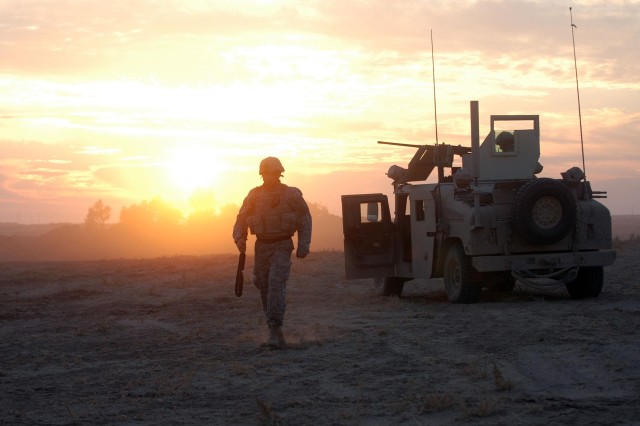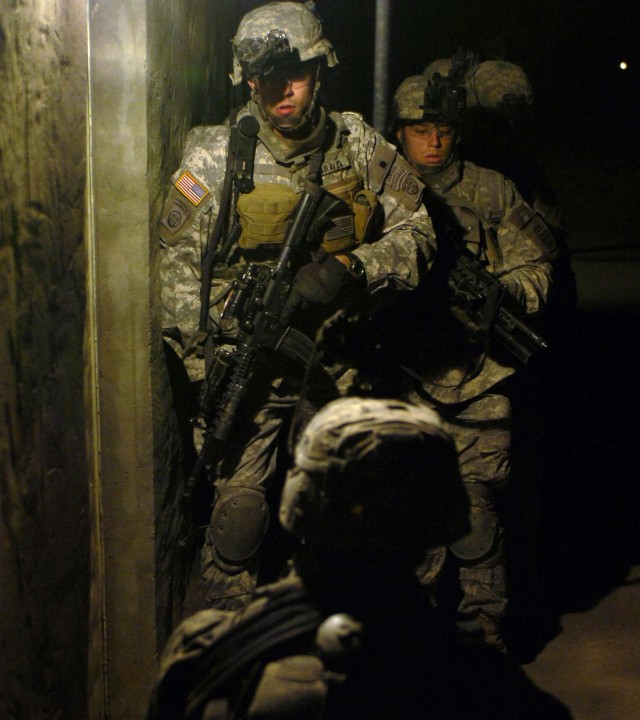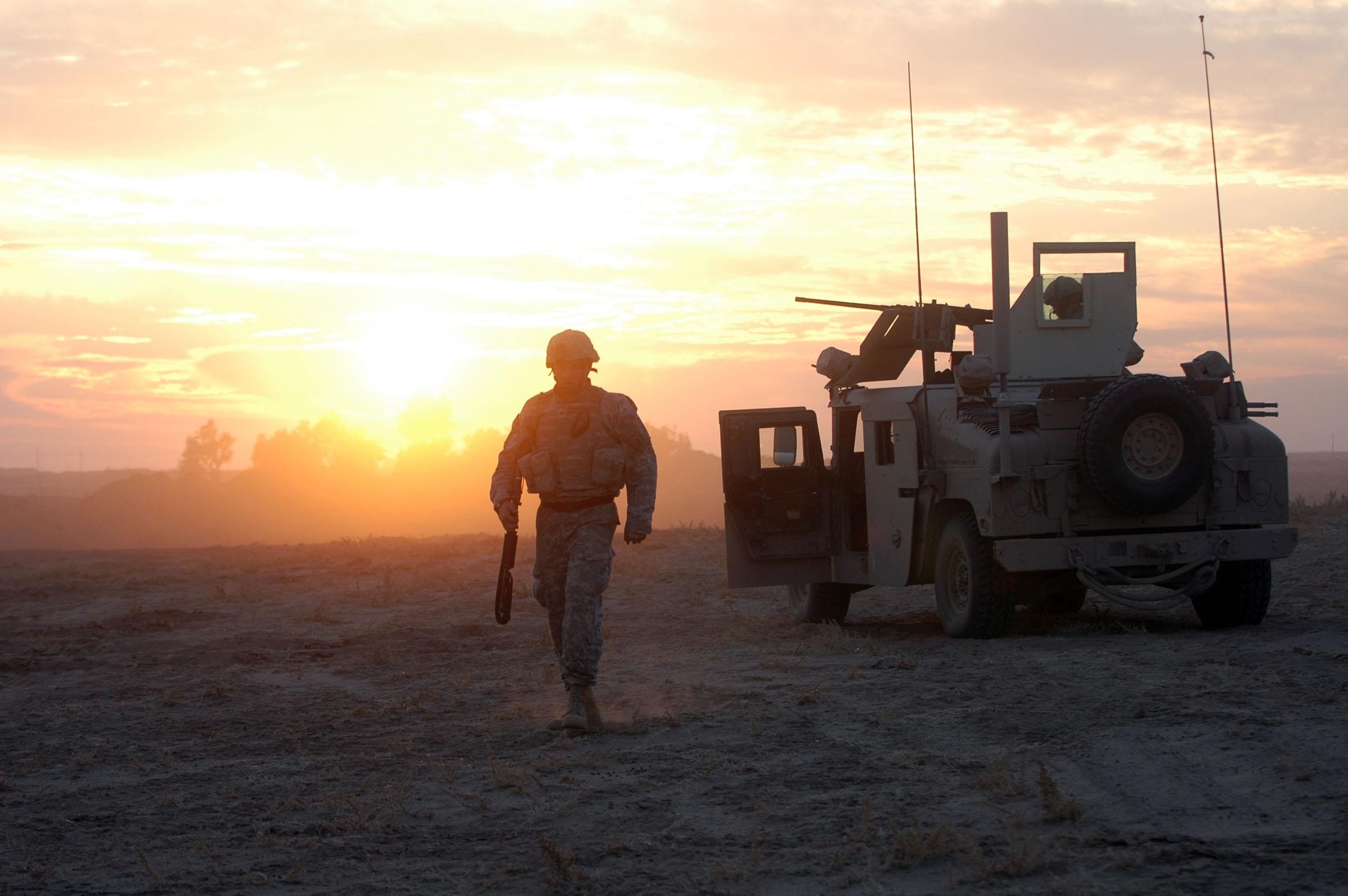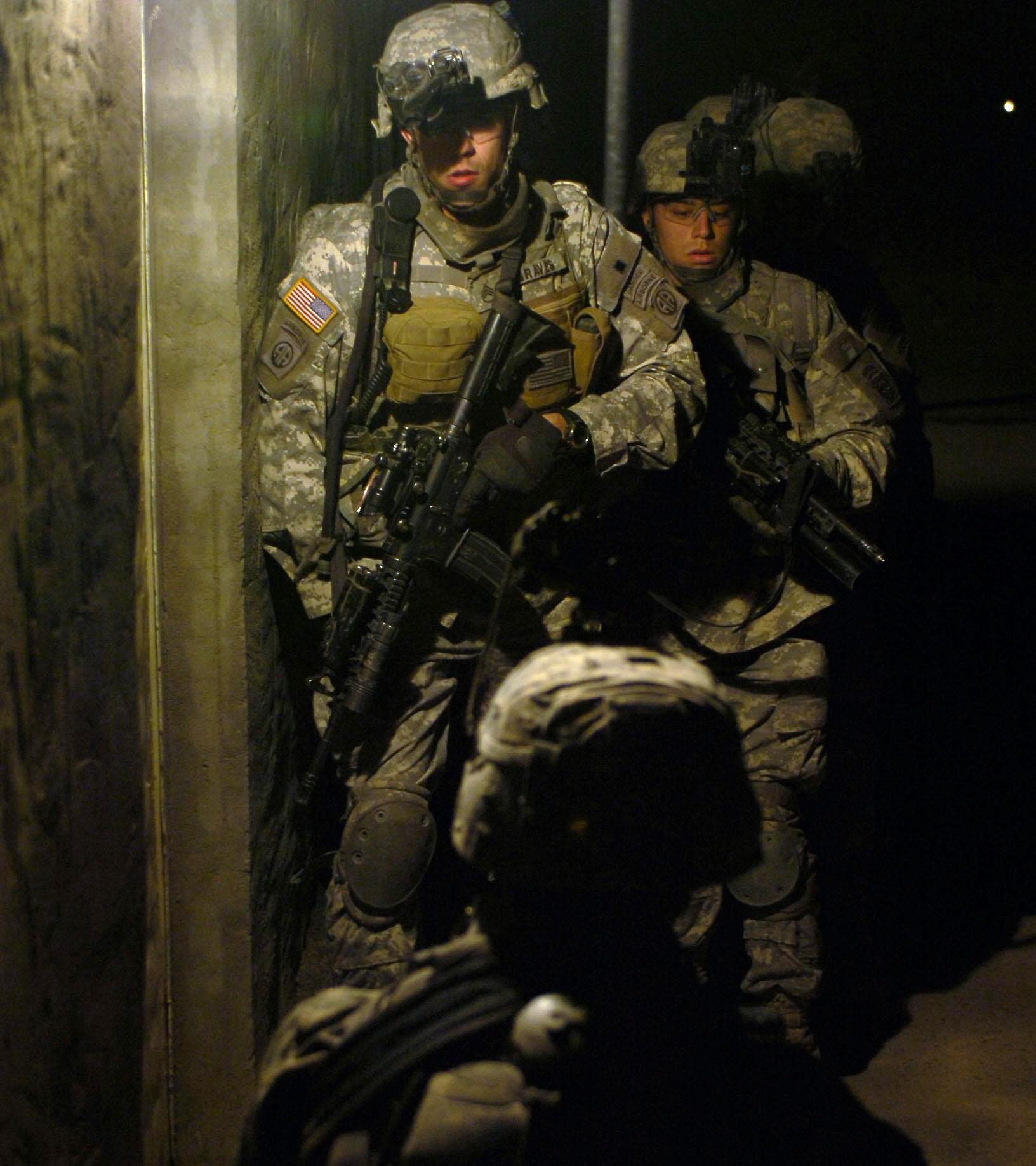SINIYAH, Iraq (Army News Service, Dec. 29, 2006) - Many terrorists sought a haven here but are now confined to the cordoned city by a 12-foot high berm that wraps eight miles around Siniyah in the shape of a horseshoe. Razor wire outlines the tops of the berm amid surveillance and patrols by Iraqi and U.S. troops.
The only way in or out of the city is through a single, paved road with checkpoints manned by Iraqi soldiers. The checkpoints have always existed but were reinforced after numerous attacks on security forces and civilians in Siniyah, said Lt. Col. Scott Harris, commander, 1st Battalion, 505th Parachute Infantry Regiment, 82nd Airborne Division.
Siniyah lies in northern Salah ad Din Province and is the first city east of the Syrian Desert\'s northeastern edge. Because of the city's location, coalition forces believe terrorists harbor themselves there before filtering to other areas throughout Iraq, Harris continued.
Security in Siniyah began showing signs of weakening Oct. 24, 2006, when the police force of more than 100 quit due to terrorist attacks and threats against them and their families. Security didn't show any signs of improvement as the police station was completely destroyed only 13 days later.
"The insurgents had a very strong hold on the city," Harris said. "The entire city council quit; even the mayor resigned.
The increased violence in Siniyah led to a city-wide cordon taking effect Nov. 29. Soldiers from the 4th Iraqi Army Division, and Paratroopers from 1st Battalion, 505th Parachute Infantry Regiment, established the city's current posture to prevent terrorists from infiltration and escape, Harris said.
Paratroopers from the 618th Engineer Support Company (Airborne), 20th Engineer Brigade, began constructing the berm. They worked hand in hand with their Iraqi engineer counterparts to reinforce the obstacle, according to 1st Lt. Time Hassell, the company's executive officer.
Only those who required urgent medical attention were allowed to leave the city, and no one was allowed to enter. Supply trucks carrying food, water, and heating oil were searched and escorted to drop-off points on the edge of the city inside the cordon.
"People may endure discomfort, but isolating the terrorists is important to the long-term success for security in the city," Harris said. "There are 29,000 good people in Siniyah, and we just want to help them get a grip back on their lives without fear of terrorism or violence."
Two weeks passed before troops began clearing Siniyah. They began with more than 500 Iraqi troops from eight different Iraqi army units and a company-size element of Paratroopers from 1st Battalion, 505th Parachute Infantry Regiment, Dec. 13 in search for the isolated terrorists.
Initially, Iraqi and U.S. troops stayed in the city for more than 72 hours straight. They searched homes for weapons and terrorists with hasty searches by day and nighttime raids.
Paratroopers from Company C's First Platoon detained 17 suspected terrorists during an early morning raid Dec. 15. The clearing operation totaled more than 80.
During the two weeks of isolation inside the city, insurgent attacks decreased by at least 300 percent. The city's focus now is to establish a police force to actively patrol, Harris said.
"If Siniyah doesn't have an enduring security force in the city, it invites wrong-doing," Harris continued. "I don't know if we'll be able to show the people a totally happy and secure population, but we've certainly set the conditions for success in the future."
Siniyah's western boundary will remain permanently cordoned from the desert. Iraqi and coalition troops will continue to provide security to the outer limits of the city, while the enduring police force patrols the inner, Harries added."




Social Sharing